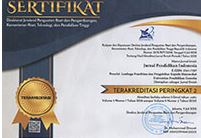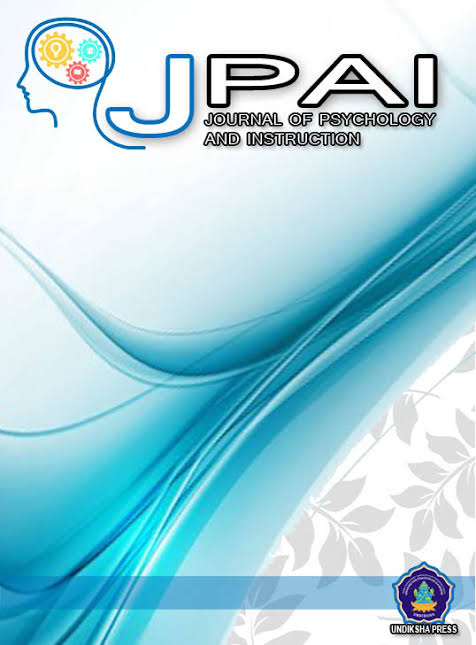Analysis of the Effectiveness of Using Augmented Reality (AR) on Science Learning in Elementary Schools: A Systematic Literature Review
DOI:
https://doi.org/10.23887/jpai.v8i3.79804Kata Kunci:
Augmented Reality, Science, Elementary School, A Systematic Literature ReviewAbstrak
The use of Augmented Reality (AR) in science learning in primary schools enriches students' learning experience by presenting interactive and visual content, allowing them to explore scientific concepts directly through advanced technology. The objective of this study is to scrutinize the effectiveness of using Augmented Reality (AR) on science learning in elementary schools through a systematic review. The study employs a Systematic Literature Review (SLR) as its methodology by going through 4 stages, and the articles analyzed in this study were released in 2019-2023 in the Scopus database. In stage 1 or the identification stage, 27,520 documents were obtained with the keyword “Augmented Reality” and year restrictions ranging from 2019 to 2023. Then in stage 2 or the filtering stage added the keyword “Science” which obtained 1,874 documents and added back the keyword “Elementary School” so as to obtain the results of 51 documents. Furthermore, at stage 3 or eligibility, the documents that have been obtained are selected again according to the eligibility criteria, namely documents with citations above 10 and can be accessed or downloaded, resulting in 8 documents. According to the study's outcomes, it is evident that utilizing Augmented Reality (AR) is an effective method for enhancing science education in elementary school settings.
Referensi
Ahmad, N. I. N., & Junaini, S. N. (2022). PrismAR: A Mobile Augmented Reality Mathematics Card Game for Learning Prism. International Journal of Computing and Digital Systems, 11(1), 217–225. https://doi.org/10.12785/ijcds/110118
Bunyamin, M. (2023). IPAS Implementation in Elementary Schools: How Teachers Build Student Understanding. Edunesia. https://doi.org/10.51276/edu.v4i3.533
Chen, C.-H. (2020). Impacts of augmented reality and a digital game on students’ science learning with reflection prompts in multimedia learning. Educational Technology Research and Development, 68(6), 3057–3076. https://doi.org/10.1007/s11423-020-09834-w
Chou, Y.-Y., Wu, P.-F., Huang, C.-Y., Chang, S.-H., Huang, H.-S., Lin, W.-M., & Lin, M.-L. (2022). Effect of Digital Learning Using Augmented Reality with Multidimensional Concept Map in Elementary Science Course. The Asia-Pacific Education Researcher, 31(4), 383–393. https://doi.org/10.1007/s40299-021-00580-y
E., H., W., W., Coben., B., A-S., P., M., K., & Fetters. (2021). Analysis of Teachers’ Resources for Integrating the Skills of Creativity and Innovation, Critical Thinking and Problem Solving, Collaboration, and Communication in Science Classrooms. Jurnal Pendidikan IPA Indonesia. https://doi.org/10.15294/JPII.V10I1.27084
Ewais, A., & Troyer, O. D. (2019). A Usability and Acceptance Evaluation of the Use of Augmented Reality for Learning Atoms and Molecules Reaction by Primary School Female Students in Palestine. Journal of Educational Computing Research, 57(7), 1643–1670. https://doi.org/10.1177/0735633119855609
Ibrahim, N., Saari, E. M., Azmi, N. H., Abbas, M. A., Hasin, K., & Ibrahim, M. D. (2024). The Evaluation of Augmented Reality Dictionary to Improve English Vocabulary. Journal of Advanced Research in Applied Sciences and Engineering Technology, 38(2), 129–141.
Lai, A., Chen, C., & Lee, G. (2019). An augmented reality‐based learning approach to enhancing students’ science reading performances from the perspective of the cognitive load theory. British Journal of Educational Technology, 50(1), 232–247. https://doi.org/10.1111/bjet.12716
Lu, S.-J., Liu, Y.-C., Chen, P.-J., & Hsieh, M.-R. (2020). Evaluation of AR embedded physical puzzle game on students’ learning achievement and motivation on elementary natural science. Interactive Learning Environments, 28(4), 451–463. https://doi.org/10.1080/10494820.2018.1541908
Marini, A., Nafisah, S., Sekaringtyas, T., Safitri, D., Lestari, I., Suntari, Y., Umasih, Sudrajat, A., & Iskandar, R. (2022). Mobile Augmented Reality Learning Media with Metaverse to Improve Student Learning Outcomes in Science Class. International Journal of Interactive Mobile Technologies (iJIM), 16(07), 99–115. https://doi.org/10.3991/ijim.v16i07.25727
Mochamad, A. & Rosid. (2023). Aplikasi Media Pembelajaran IPA Untuk MI Berbasis Augmented Reality. Infotek. https://doi.org/10.29408/jit.v6i2.12496
Nurlisma. (2022). Prinsip-prinsip pengembangan iptek dalam perspektif islam serta korelasinya dengan pembelajaran abad 21 dan pendekatan saintifik. https://doi.org/10.58645/jurnalazkia.v17i1.175
Rahmadina, A., Rohmani, R., & Haryadi, R. N. (2024). Introducing learning models focusing on elementary school science activity in terms of a systemic literature review. Journal of Science and Education (JSE), 4(2), 109–124. https://doi.org/10.56003/jse.v4i2.318
Rohmani, R. (2019). Pembelajaran Ipa Berbasis Multimedia Interaktif Untuk Meningkatkan Minat Dan Prestasi Belajar Siswa. Eksponen, 9(1), 67–78. https://doi.org/10.47637/eksponen.v9i1.134
Royana, A., Ahmad, Z., & Mardiansyah. (2023). Implementasi Augmented Reality sebagai media pembelajaran perangkat Internet of Things dengan metode Marker Based Tracking. J-Cosine (Journal of Computer Science and Informatics Engineering. https://doi.org/10.29303/jcosine.v7i1.412
Sri, S. & Rahayu. (2023). Development and Implementation of Augmented Reality-Based Card Game Learning Media with Environmental Literacy in Improving Students’ Understanding of Carbon Compounds. Orbital: The Electronic Journal of Chemistry. https://doi.org/10.17807/orbital.v15i2.17617
Sukirman, S. (2023). Development of Augmented Reality Multiple Markers Application Used for Interactive Learning Media. In Sinkron: Jurnal dan penelitian teknik informatika. https://doi.org/10.33395/sinkron.v8i3.12482
Syawaludin, A., Gunarhadi, & Rintayati, P. (2019). Enhancing Elementary School Students’ Abstract Reasoning in Science Learning through Augmented Reality-Based Interactive Multimedia. Jurnal Pendidikan IPA Indonesia, 8(2). https://doi.org/10.15294/jpii.v8i2.19249
Triandini, E., Jayanatha, S., Indrawan, A., Werla Putra, G., & Iswara, B. (2019). Metode Systematic Literature Review untuk Identifikasi Platform dan Metode Pengembangan Sistem Informasi di Indonesia. Indonesian Journal of Information Systems, 1(2), 63. https://doi.org/10.24002/ijis.v1i2.1916
Wahyu, Y., Suastra, I. W., Sadia, I. W., & Suarni, N. K. (2020). The Effectiveness of Mobile Augmented Reality Assisted STEM-Based Learning on Scientific Literacy and Students’ Achievement. International Journal of Instruction, 13(3), 343–356. https://doi.org/10.29333/iji.2020.13324a
Яна, М. (2023). The role of education in overcoming social and economic inequality in society. https://doi.org/10.31219/osf.io/afn45










